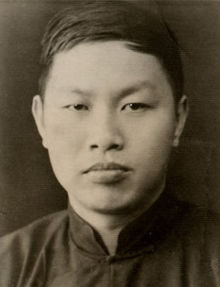Watchman Nee
Chinese evangelist and author
Biography
Watchman Nee (whose real name was Nee Tao Shu) was born in Swatow but soon moved with his parents to Foochow, where he spent the early part of his life. Converted when he was eighteen, he gave up the opportunity of attending university and devoted himself to Bible study and gospel preaching. He was greatly influenced by Margaret Barber, an English missionary who introduced him to the writings of Jessie Penn-Lewis, D. M. Panton, and J. N. Darby He produced a magazine, The Christian, which soon had a wide influence. When he was only twenty-five he wrote and published The Spiritual Man, a three-volume work explaining the full process of spiritual maturity
For a time he was linked with an exclusive group of Brethren in England. This fellowship was later broken because he could not accept their exclusive principles. Later he started work in Shanghai and had close fellowship with Charles Judd of the China Inland Mission. In 1930, while teaching Christians in Chefoo, he met Witness Lee, who later was to become a leader in the work. During this third decade, the work spread rapidly and "Church Assemblies" (known to others as the "Little Flock") were established in many parts of China. Two of his fellow workers, Simon Meek and Faithful Luke, started the work in Manila and Singapore. The "Church Assemblies", which often started as small house churches, were completely independent of foreign missionary organizations and were used to bring many into the kingdom of God. He was, however, often criticized for his insistence that there could be only one true local church in each city As a result of this emphasis, together with the zeal and warmth of fellowship and the attraction of a movement that was free from all foreign connections, quite a number of people were drawn away from other churches.
After Pearl Harbor, while living under the Japanese, he organized a pharmaceutical company for the sake of raising money for the work of the ministry. This business venture caused him much suffering because his fellow workers misunderstood his intentions; this resulted in Nee's withdrawal from active ministry for several years. Later it provided an excuse for his arrest by the Communists.
Following the end of the war with Japan, Watchman Nee was restored to leadership, and the work in Shanghai prospered with large numbers of assemblies springing up in many parts of the country. From them have come many of the house churches, which have continued a faithful witness in a communist society. Watchman Nee was arrested in 1952 while on a trip to Manchuria in connection with the disposal of the pharmaceutical business. Four years later, he was brought to Shanghai for a public trial and found guilty of a large number of charges brought against him?all of which were false. After serving his fifteen-year sentence, he was kept in prison and remained faithful to his Lord until his death.
Watchman Nee will be remembered not only for his leadership of an indigenous church movement in China, but also for the books that continue to enrich Christians throughout the world. Some of the more noteworthy works are The Normal Christian Life; Changed into His Likeness; Love Not the World; What Shall This Man Do; A Living Sacrifice; Spiritual Man; and Sit, Walk, Stand. His biography. Against the Tide,was written by Angus Kinnear.

